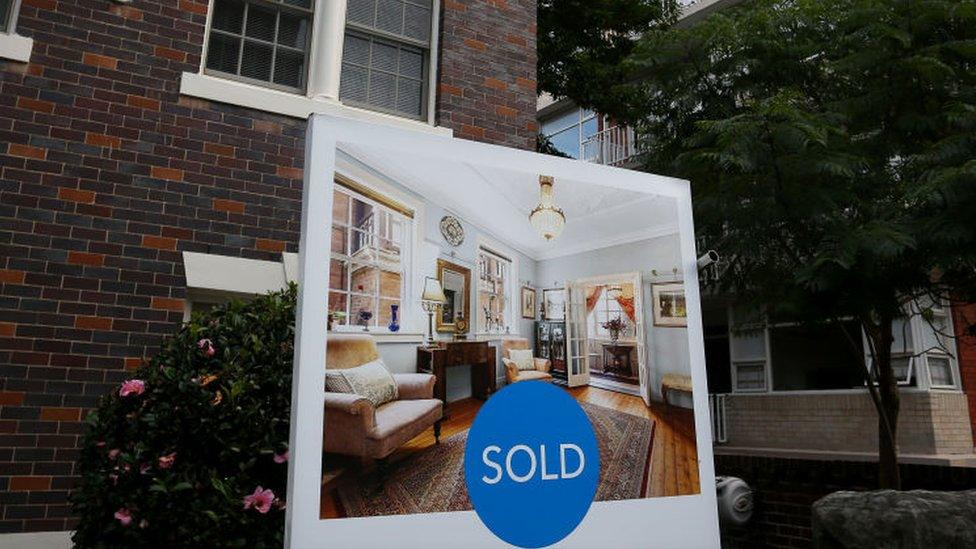The newest victims of Australia's homelessness crisis
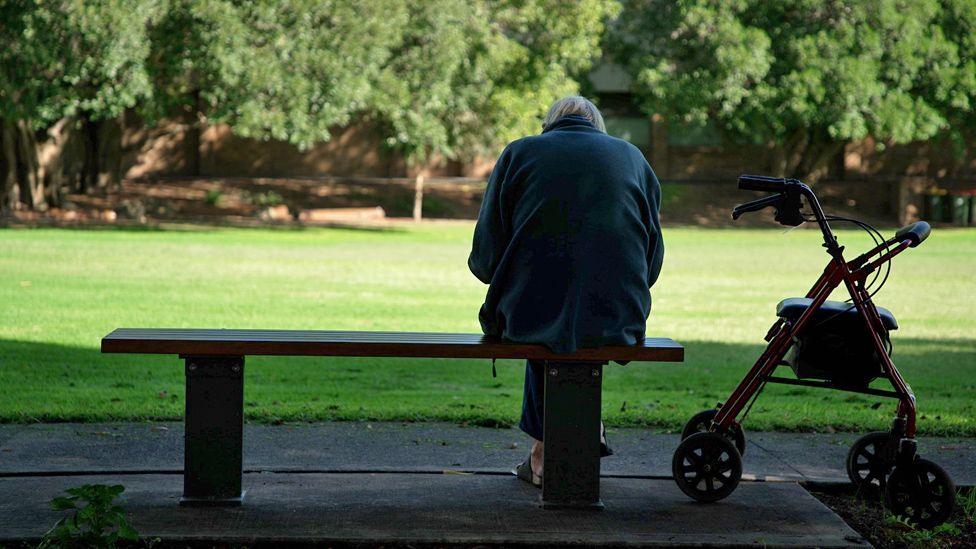
Mary, 71, became homeless when her landlord evicted her and she couldn't find another affordable place to rent
- Published
This isn’t the retirement that Mary had dreamed of.
The former midwife spent years living on a cattle station with her husband on the north-western edge of Australia - outside her window, the vast and ruggedly beautiful Kimberley region.
Now, though, the frail 71-year-old spends most of her days and nights in her battered car. Her current view is the public toilet block of a Perth shopping centre.
Mary is not her real name. She does not want people she knows to find out she is living like this.
She is one of the roughly 122,000 people who are homeless in Australia on any given night, according to data from the country’s bureau of statistics.
A recent government report says that 40% of renters on low income are now at risk of joining that cohort.
That’s what happened to Mary. Pushed out of her flat last year when her landlord opted to lease it for short-term stays, she couldn’t find anywhere affordable on her state pension.
Her husband can’t help - he’s in a care home with Alzheimer's disease.
“He'd be horrified [if he knew], absolutely mortified,” she says.
So now Mary’s 4x4 is full to the brim with her belongings. A walking frame lies in the back, along with piles of clothes. On the passenger seat sits a tin of rice pudding.
“That’s my evening meal, every night without fail,” she says, picking it up, her hands shaking.
She sometimes gets a bed in a shelter, but most nights, Mary settles down in a part of the city where more police are around. She explains she has been assaulted four times and does not want to take any risks.
Every so often, Mary coughs - the after-effects of a recent bout of pneumonia she suffered after getting caught in a rainstorm. The car battery died when the windows were down, and she had no money to fix it.
“It seems that the moment people know you're homeless… you become what I call a non-person,” she says. “You no longer have any value in people's lives.”
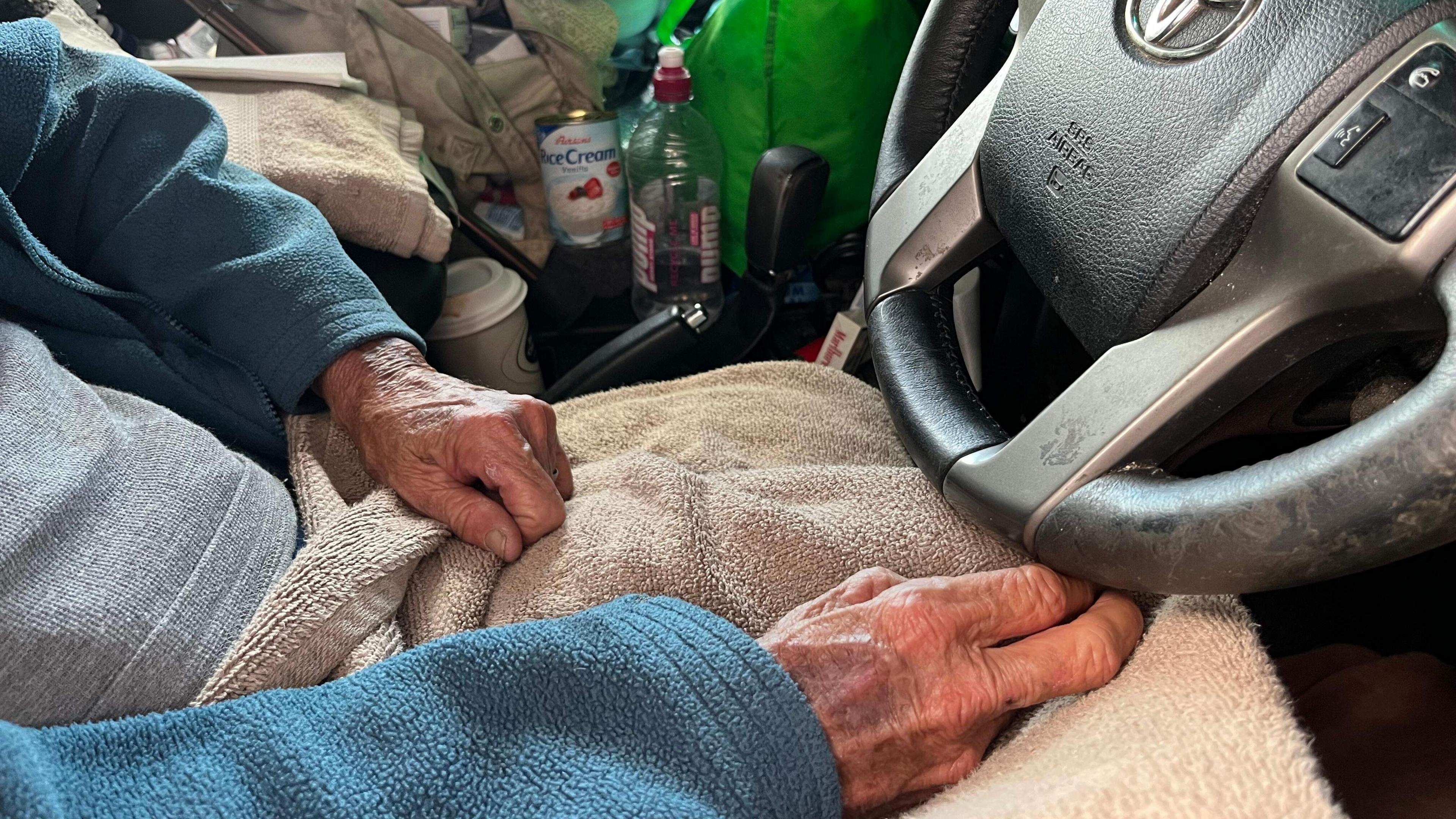
Mary has spent nine months living in her car
Homelessness services around Australia have reported a jump in demand amid a national housing crisis – with women and children the clear majority of those needing help. Indigenous Australians are over-represented too.
In recent years, record house prices, underinvestment in social housing, a general shortage of homes and drastically climbing rents, have left much of the nation’s growing population struggling to find a place to live.
Rents have risen the fastest in Perth - up an average of 20% this past year alone. In the few days we were in the city, everyone had a story to share.
Hailey Hawkins tells me she and her daughter Tacisha have been couch-surfing and living in tents for nearly four years, most of Tacisha’s life. They are eligible for social housing – but waiting lists are years-long.
“One week, I'll have enough money to have decent enough accommodation plus be able to feed both myself and my daughter,” she says, struggling to hold back tears.
“Otherwise, it's asking money to friends, family or pretty much anyone really that is willing to help.”
Michael Piu, head of St Patrick’s Community Support Centre, says they’re seeing people from all walks of life – young and old, working families and individuals alike – come through the doors.
“A single trigger can push people into homelessness, and there really are very few options for them," he says.
“They don't know where to start.”
Is housing a ‘human right’?
The housing crisis remains a national talking point, and it is no different inside the country’s parliaments.
Wilson Tucker, a member of the Western Australia state parliament, recently made headlines for being a "homeless" politician – although he prefers the word nomadic. He was evicted and, despite a salary almost twice the national average, could not find anywhere else to live.
But what Mr Tucker didn’t initially mention was that he is also a landlord. He says he bought the home with tenants already living there, and didn’t want to turf them out in what he calls a "red hot" property market.
So now, when parliament sits, Mr Tucker stays in hotels. The rest of the time he is on the road in his 4x4 and roof tent.
“But there's a lot of people out there that don't have that privilege, and they're resigned to fight over this handful of properties,” he tells the BBC.
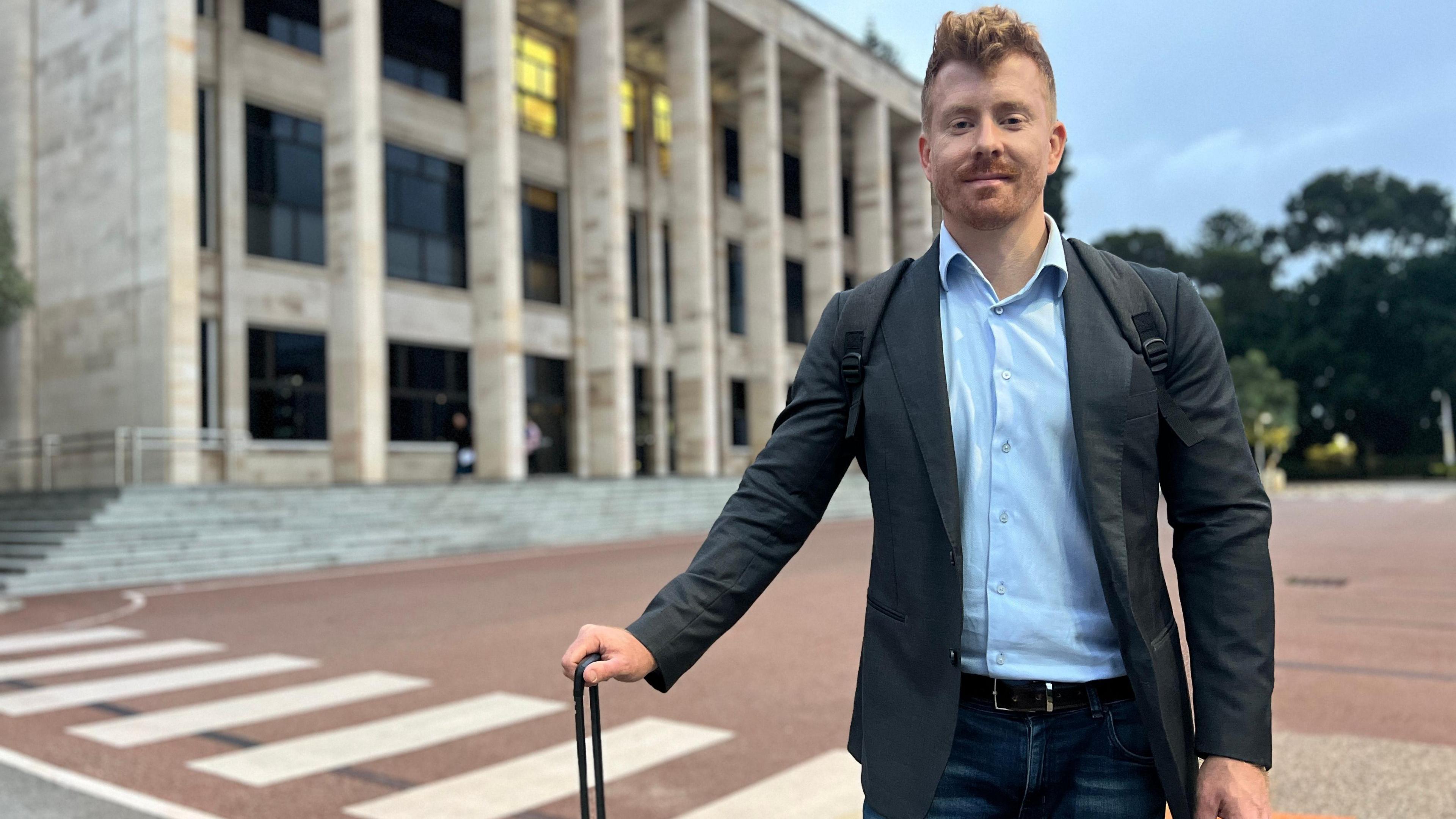
Wilson Tucker, a member of the Western Australia state parliament, made the news as a "homeless politician"
Housing has also been on the agenda in the federal parliament, where MPs have been considering making it a legally protected human right.
Two independent parliamentarians introduced a bill on the issue off the back of advocacy by the Australian Human Rights Commission, but without government support it is unlikely to pass.
Prime Minister Anthony Albanese announced in this year’s budget A$6.2bn ($4.1bn; £3.3bn) to speed up the construction of new houses, provide rent subsidies, and increase the pool of social and affordable housing.
States and territories also have a slew of initiatives they hope will ease the strain.
But homelessness charities are crying out for extra support to keep up with the growing demand, and advocates say more urgent reform – like scrapping lucrative tax concessions for investors or increasing protections for renters – is needed.
There has been criticism heaped on landlords too for hiking rents at a time when people are squeezed – and discussions about limiting increases and narrowing the reasons for which a landlord can evict a tenant.
But the property industry says landlords are hurting too.
In May 2022, interest rates began rising faster than at any time in Australia's history – with 13 increases over 18 months.
“Most people only own one investment property and they've had their mortgage repayments [on those properties] go up by 50% as well,” says Cath Hart, chief executive of the Real Estate Institute of Western Australia.
She says the conditions are tough enough already, and the pandemic showed that measures like rent increase caps and eviction moratoriums only push landlords out of the long-term rental market.
“What we saw during Covid… was that 20,000 fewer properties were available to rent as investors just went ‘You know what? It's too hard.’”
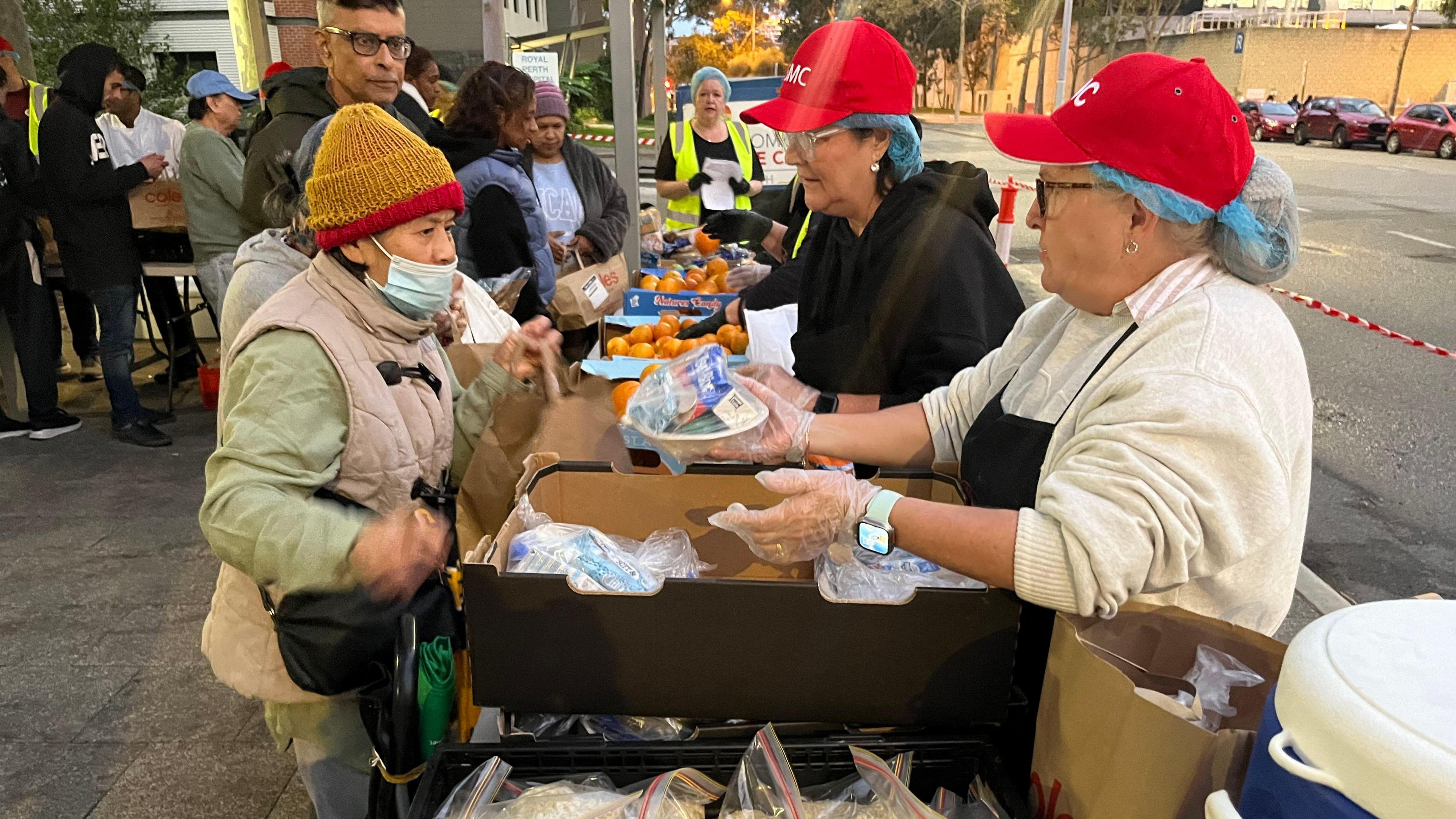
Every night volunteers in Perth distribute food and clothes to the homeless
In the meantime, every night different charities take turns offering help to those who want it.
As evening falls and commuters exit their shiny office buildings in the centre of Perth, crowds of people with nowhere to go gather in a square by the railway tracks.
With the Australian winter now kicking in, it is the clothes donations that are causing the biggest flurry. Supermarkets donate food, there is a laundry service, a mobile doctor surgery and a hairdresser.
Also out are street chaplains, providing meals.
Michelle Rumbold has joined them to help. Until a few months ago, she was the one receiving the handouts. A registered nurse, she was left with nothing after she got evicted and crashed her car.
“I ended up losing my job purely because I didn't have accommodation and I didn't have a car,” Michelle says.
“I think it took a while for people to actually realise I was homeless, because I didn't look homeless. Gradually, over time, you become so used to the street that you lose yourself.”
Michelle managed to get transitional housing and she’s now back on her feet, working in a GP’s surgery. But she still likes to come back here and help.
“It's hard to leave this place once you've been here,” she says. “It's a really odd thing to say but people become your family here.”
But for every Michelle, there are plenty more like Mary, still struggling.
For Mary, it’s the loneliness that hits her the most.
“You’ve got no TV, no neighbours to say hi to,” she says.
“People often just give you the side eye and think 'Oh God, not another one' and walk away.”
Additional reporting by Simon Atkinson.
Related topics
More on Australia's economy
- Published20 April 2024
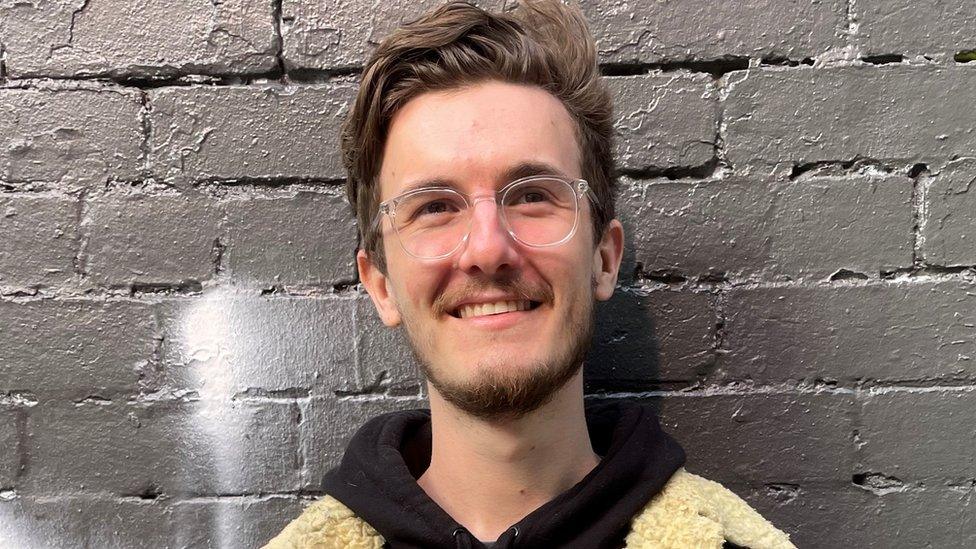
- Published28 December 2023
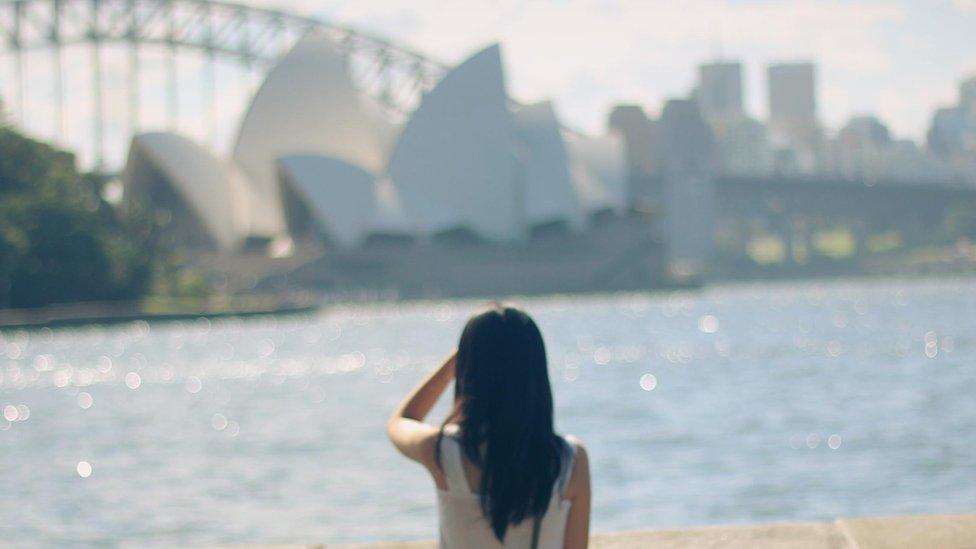
- Published29 July 2021
